I may get commissions for purchases made through links in this post.
Renegade builders and other individuals who don’t accept status quo are experimenting and innovating with how we live.
One way to circumvent building codes is to build a tiny home. Charming as they can be, you may want to reside in something a little more spacious.
Something you can grow your own food in. Perhaps a house that heats itself and drains its black water in a eco-friendly way.
Or you just want to recycle good old fashioned materials to build your abode with.
A few hardcore, gritty areas such as The Mesa and Slab City aside, few places without building restrictions exist in the US. The following places offer limited freedom to build whatever you want.
Arcosanti Urban Laboratory, Arizona
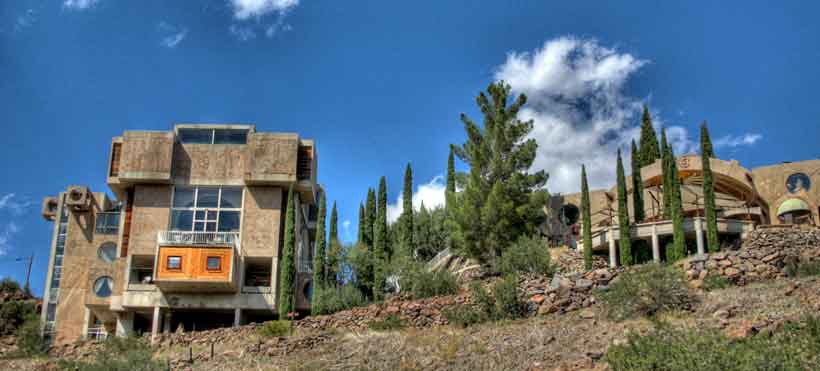
Designer Paolo Soleri had a vision of an eco-city he partially realized 70 miles north of Phoenix.
Long before eco-cities became popular, started building his experimental city, designed for 5,000 people in the Arizona high desert.
Even after his death, Arcosanti still functions urban laboratory focused on innovative design, community, and environmental accountability.
Marfa, Texas
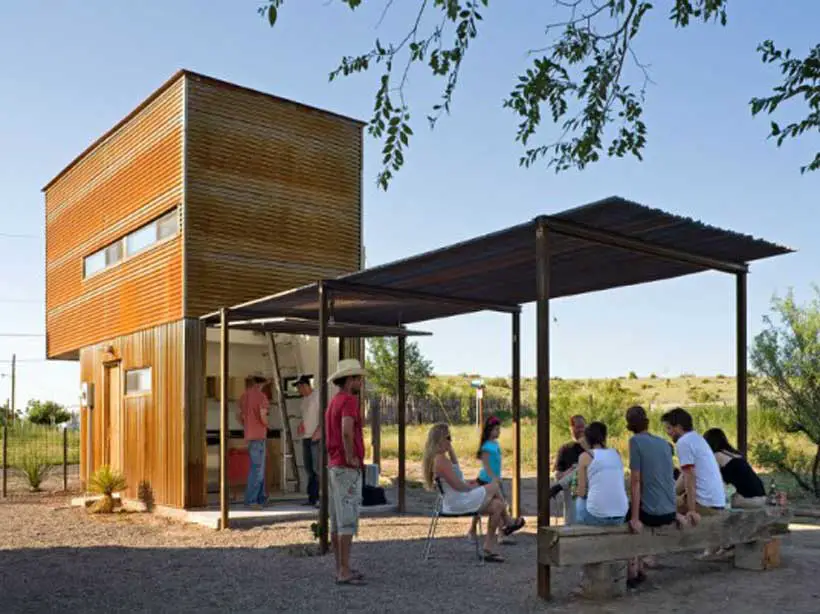
Popular by tourists and art enthusiasts for its unhinged minimalist art, the end 19th century established rail road water stop town Marfa became a pilgrimage when NYC artist Donald Judd settled here.
The libertarian experiment in minimalist building, more specifically, the absence of building code has allowed people to rebuild ruins according to their own taste and views.
The Field Lab, Terlingua Texas
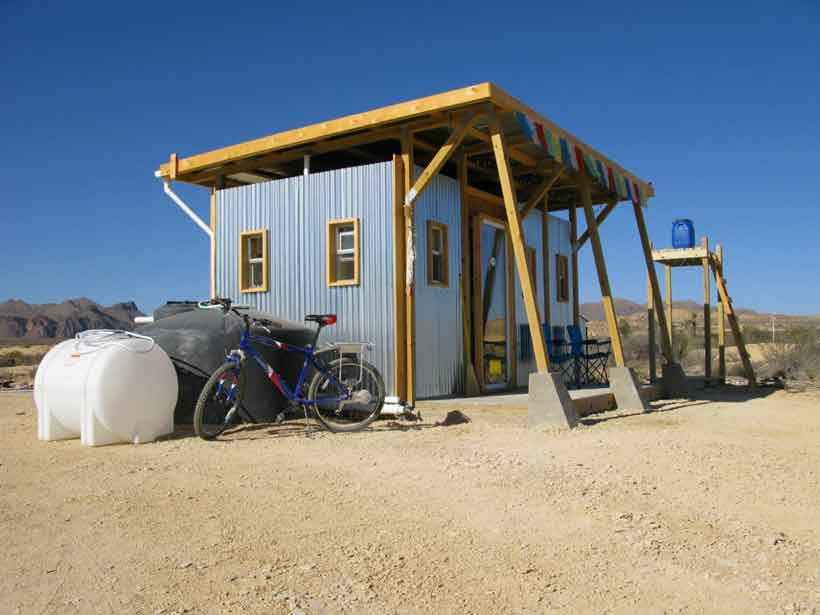
Deep in the West Texas desert, two and a half miles off Highway 118, approximately 30 miles from the Mexican border lives John Wells. It’s one of the few places in the USA without building codes or zoning laws.
Which is exactly the reason why Wells established his off-grid existence here.
The area is known locally as the Moonscape, lacks electricity, water, or paved roads, but you see the Milky Way better here than you can at the Hayden Planetarium.
Earthship Biotecture, “radically sustainable living”. New Mexico
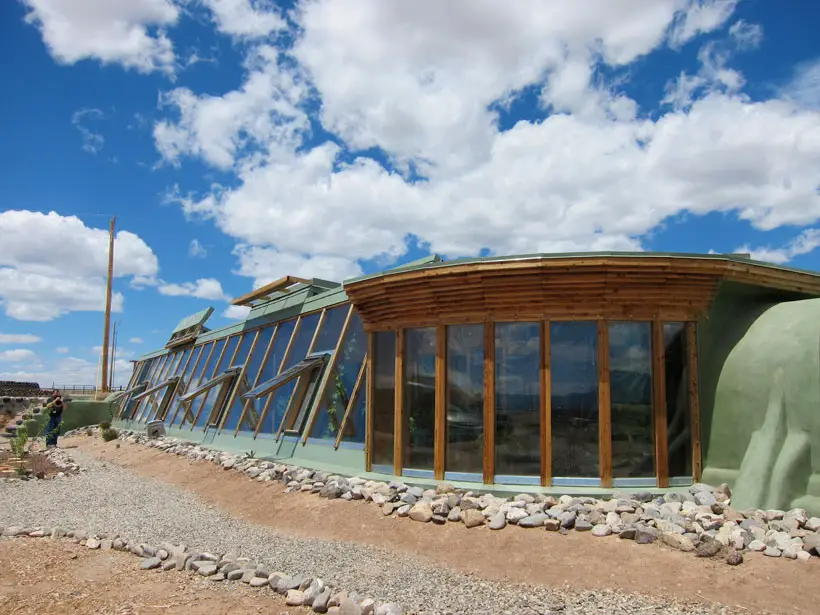
Self contained, utility free homes that collect rainwater and condensation, that grow your food, from vegetables and fruit to fish, chickens and goats are, according many, the way of the future.
The initiator is architect Michael Reynolds, who, for the past 35 years, has been experimenting with and innovating sustainable housing.
These homes produce their own energy and are made of garbage. More about Reynolds quest in more sustainable living for all of us in the documentary below.
Must-see documentaries on defying building codes
Garbage Warrior
A Spaghetti Western on Lean Urbanism
What do you think, should there be more places without building codes?
Be it to experiment with creating green sustainable buildings. Or for people to be less forced by commercial interests to use mass-fabricated materials while there’s plenty high-quality salvaged resources available?
Perhaps you even think it’s a basic human right to be able to build your own abode the way you see fit (as long as you’re not hindering other people)?
As Michael Reynolds writes
As a citizen of the earth…
I fully have the right…
to harvest water from the sky
to grow my own food in my own home
to harvest energy from the sun and the wind
to contain and reuse my own waste on my own land
to make my shelter comfortable without the use of fossil fuels
and to harvest what others throw away to construct my own home
I am willing to die to defend these rights and to spread the knowledge of how to
achieve them to others.If six billion other people said this as well…
we would transcend the corporations, the governments, and the federal reserve bank.We, the people, would always survive.
I wholeheartedly agree. What’s your stance? Speak up below.
Image credits: Arcosanti: Flickr. Wee House, Blogspot. Earthship, Flickr.






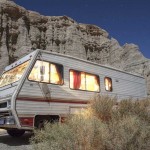
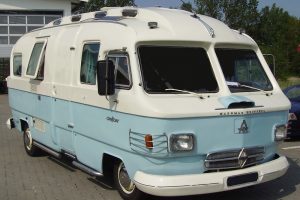



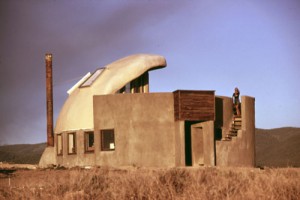
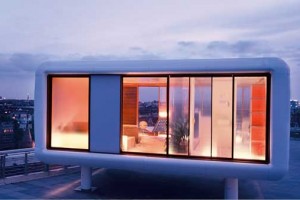
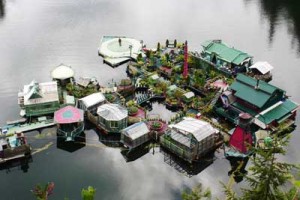

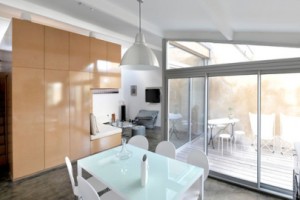








There are many places, but they are disappearing. We are building in rural Montana. What we found is that you must be away from cities. We do have some safety codes such as electrical and septic. However, with no teeth in them as long as you are not doing unsafe things it is possible to do what you want.
For instance, the penalty for not having an electrical permit and inspection is that the utility cannot connect to your home…. Who cares? The penalty for ignoring the over board septic system requirements is not being able to get a bank loan. If you are living on rain, you will not be able to produce the volume of waste that the state thinks you need to design for, but they won’t even discuss it. This doesn’t mean that you should do things that will negatively impact the earth, but being realistic can cut building costs many ways.
Bob
Esmeralda County, Nevada, has no building codes but land is fairly expensive. Arkansas formerly had no codes on properties over 10 acres, (as of 1990) not sure if that is still true.
The Missouri Ozarks have many rural areas without building codes. Douglas County (along with neighboring counties) is such a place This county has only one small incorporated town and has a relatively sparse population, yet is within one to two hours of cities like Springfield and Branson. Plenty of back-to-the-land types. There are, of course, downsides to no building codes. Some people living in rundown shacks, for example, and accumulate old vehicles etc. Buyer beware. But if you’re building yourself, and buy sufficient land to somewhat insulate yourself from having a neighbor living too close to you, you should be fine. Also, unlike areas in the West where water is becoming an issue, the Ozarks have plenty of rainfall and good groundwater.
Appanoose co Iowa has no building codes outside of the city limits. We have 2 container homes and a container office here. No inspection, rv living and hunting cabins ok, cheap land, just need a septic for full time.
This is operating under the false pretense that the land you “own” is yours. As long as the government collects property tax you are merely renting the land. The government has every right to tax the money it owns. Not the land that was here before and long after them.
Sad but true. Do you happen to have any first hand knowledge of people successfully obtaining land patent/allodial titles?
LAND PATENT makes it truly YOURS
You all do know that building codes are in place for public safety, right? It’s also an insurance policy for home buyers that what their purchasing (often the most expensive item they’ll ever buy) is structurally sound and safe for their families.
Wanting to get rid of these codes in highly dense areas is insane. Your neighbor shouldn’t have to worry about your shotty electoral work.
You all do realize the arguments for taking these away are the same ones for reducing environmental protections, right? It’s to slightly reduce to the cost of production and increase the margins of companies at the cost of individuals and the environment. How do hypercritical is it to want to build a sustainable home at this cost???
Josh i don’t think it is about the quality of electrical work. For me its house size can i have solar or not. But i still want my house built well and if i have it wired for solar i want it done right
Josh, if there were not these codes, zoning and land controls (and massive centralized ownership claims over MOST land) buying a home would not be the most expensive and risky choice of a lifetime. The worries are overblown and feed central control and maintain poverty. The rapid growth in zoning since the 1940’s has produced a world full of strip malls and generic house farms. It creates an environment in which no one is allowed to experiement or build creatively except the super rich. It sounds very mature to take the position you do but its a false flag that protects the status quo and leaves most people landless and at the mercy of those who own. And even owners are strapped by zoning so that building is very costly and the cost of having a roof over your head rises for everyone.
Before 1940 most homes in America were still stick built by the owner or his personal contractor with far fewer zoning and regs. If you can show me something build since 1940 that is worth keeping that was not built by a multimillionaire or a corporation I would love to see it.
Fear gives us nothing but garbage.
There are many of us who have no need of building codes due to the fact that we are quite capable of building structures that EXCEED code, that install waste water recycling systems and out perform most standardized building practices! As to taxes…when you apply for a “permit” you are acquiescing to “authority” for continued taxation on your own, privately owned goods…does that sound “normal” to you? It is the same practice engaged by DMVs across the nation with an underlying tone that it is “for public health and safety”. If you carry insurance…just in case ~ I don’t give a hoot if you wish to live in a cardboard box and crap in a five gallon bucket…so long as you are composting!
Absolutely correct in the context of those living in a densely populated city area where construction directly influenced quality of life of those connected.
I can see what you are trying to say about real estate purchase, but can not agree completely.
BUT in the case of sparse land with a mile or more between homes the logic falls flat. Likewise in the case of someone’s land/house that
1) they bought in cash or inherited free of banking
2) built themselves or was already built and free of mortgage
3) most importantly do not plan on or do not wish to sell to another party AT ALL
As all homes purchased through banking interest require inspection, a house that fails inspection simply will not be financed through the bank. Therefor the problem solved itself
The interested party can not get the “unsafe” house because the bank they rely on will not loan the money.
In case of a cash purchase then an inspector or *gasp* inspecting it yourself is a logical course of action
If you can not attest for the safety through these two means then *gasp* don’t buy it….
You are not self reliant not do you believe others can be, nor do you accept not getting something because you or others lack the talent or will sacrifice other aspects to obtain the talent to be self sufficient.
Protecting adults from themselves is illogical other than need for tax money and people producing needy people and soldiers
Minimum square footage coding and the like have no logical use in the areas that these conflicts are arraising.
Behind each and every one of these issues are some official or organization that is profiting off it. That is irrefutable.
to a degree but some areas are ridiculous as far as what they want and alot of stupidity in some of the rules so it’s not all for public safety pal
There is always a reason FOR a law, and there is always a reason AGAINST a law. The problem is that REASON is many times defeated by fear, emotion, and the like. There is usually a SOLUTION that is a compromise that can effectively deal with the problems. Sadly, many don’t think of these solutions, or simply don’t care about other people’s interests. Building codes have certainly helped in many ways. They have also harmed in many ways. The building code is also being corrupted by special interest groups. My father has been a building inspector for many years, and has also even voted on what would be in the building code. He has informed me how certain companies would develop a special product, give a sob story of how their product will save a couple lives, try to send special interest representatives to vote on the proposed code change, and hopefully pass a new code so that everyone has to buy their product. There was one recent code change (residential fire sprinklers) that was so outlandish that many states forbid that specific code requirement from being enforced. I could go on and on about the whole topic, but for sake of simplicity I will share just this last thought. – If building inspections were optional by law, but for those who received them and passed, they would get a “certificate”, then all the insurance companies would still require them, almost every builder would still get them (as a “credential” for their work), and banks would probably give favorable interest rates for them. So really, about the only ones who wouldn’t get building inspections are the “alternative” building experts and the homeowners who want the freedom and no hassle of being able to do their own work. I think that is a compromise that is just and fair and few would complain about.
Josh C., great points, I like the option approach. It allows for those who are afraid of buying something unique some degree of protection while also protecting the rights of individuals NOT wishing to subjugate themselves to the sometimes heavy burdens associated with inspections and regulations.
Josh why would your neighbor need to worry about your shotty electrical work? most of these off the grid homes have many acres between neighbors. Its about freedom to build a home with your own two hands, and not have some pain in the @$$ harassing you about the slightest of things, not to mention the many palms waiting to be greased ,building inspectors, electrical inspectors [when many people off grid have simple solar systems] , sewer system inspectors and others who love to mess with you because there having a bad day. No this is all about MONEY and every person with the power to do so taking your hard earned money from you. We are losing more and more of our freedoms every day. God bless the few places left in the U.S. that have NO CODES, for no codes means more freedom, for many it makes the difference between owning a home and having peace and quiet and not.
Playing Devil’s advocate: What if your shoddy electrical work sparked a forest fire?
I think we’re ALL looking to get OUT of densely populated areas, and probably never to “sell” our structure to anyone else–ever.
Where we live, in Mobile, AL, not only do we have to meet all building codes, but we have to get our plans signed off on by an engineer. We want to build an earthbag home, mostly for it’s cost savings and structural soundness…but all of these extra fees, inspections, and permits are making it seem like a pipe dream…not to mention we have to present our case to the department that is responsible for granting permits because there is nothing on alternative forms of building…so we basically have to beg them to let us try and tell them what we plan to do.
I’m looking for land in Arizona with no building code restrictions. Or does anybody know if there are Alternative Structure building permits in any AZ jurisdiction for earth ships and the like?
Try coconino county. The building dept there can tell you everything you need for alt building there.
Head NORTH to Alaska, where you can truly be free.. And cold.. But free!
My wife and I have been looking into simplifying our lives with some off-grid, homestead-like living. I have researched renewable energy sources, water filtration, gardening, etc. But we are hitting roadblocks in finding land to buy mainly do to minimum building requirements. It angers me that these restrictions exist. I feel our freedoms dwindle a little each day all because of greed.
I completely agree!!!
Wanderers end have their next Village going in in Southeast Missouri pioneering tiny house Eco Village free primitive camping for those that want to help if you’d like to build it’s $10 a day to become a shareholder